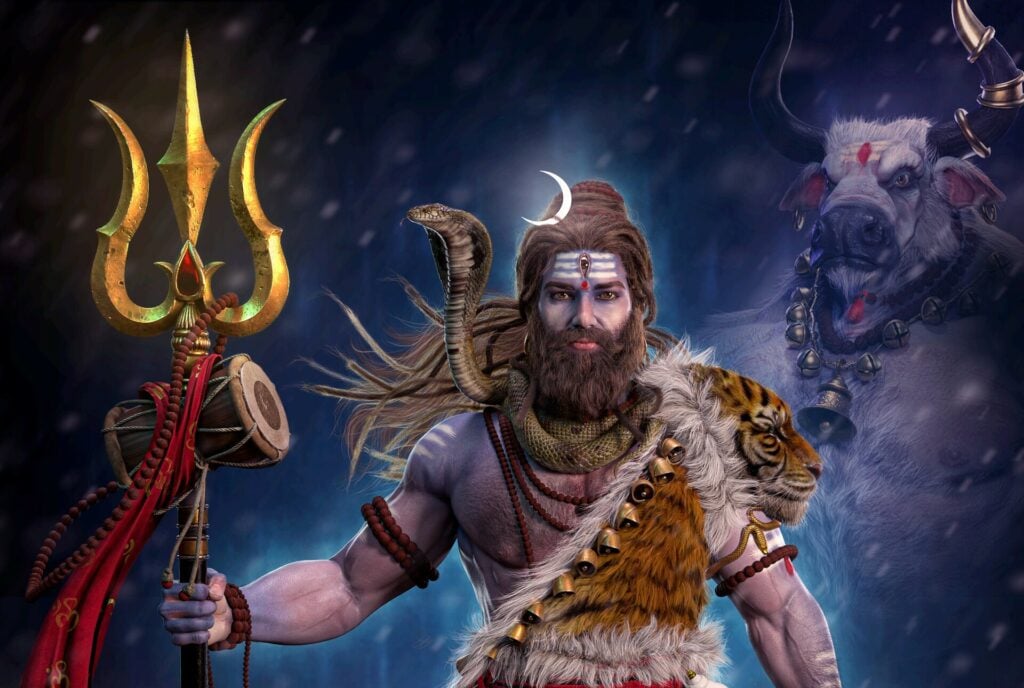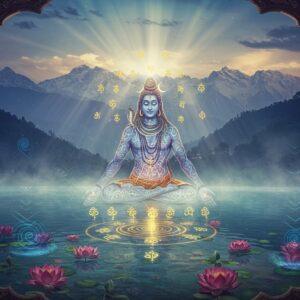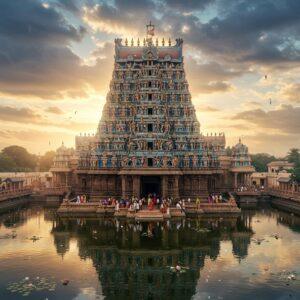
Introduction
Lord Shiva, also known as Mahadeva, is a prominent deity in Hinduism who holds various roles that reflect the complexity of his character. As one of the principal deities in Hinduism, Shiva is revered as the Supreme Being in the Shaivism tradition. He is a member of the holy trinity (trimurti), alongside Brahma and Vishnu, and holds significant importance in Hindu theology.
Overview of Lord Shiva
Lord Shiva is known by various epithets, including the Great Ascetic, Master of Fertility, Master of Poison and Medicine, and Lord of Cattle. He is worshipped as the supreme god in Hinduism and is symbolized by numerous myths and symbols.
Myths and Symbols Associated with Lord Shiva
Shiva is associated with several myths and symbols that are deeply rooted in Hindu culture and mythology. Some of the common myths and symbols associated with Lord Shiva include:
- The serpent king Vasuki around his neck
- The adorning crescent moon
- The holy river Ganga flowing from his matted hair
- The third eye on his forehead
- The trishula or trident as his weapon
- The damaru
These symbols represent different aspects of Lord Shiva’s character and power.
Significance and Role in Hindu Mythology
Lord Shiva holds a significant role in Hindu mythology as the god of destruction, alongside Brahma, the creator, and Vishnu, the preserver. In the sect of Shaivism, Shiva is considered the Supreme Being, with all other gods being aspects of him.
Despite embodying seemingly contradictory qualities such as destruction and restoration, asceticism and sensuality, Shiva remains a complex and revered figure in Hindu mythology. He is known for his role as the destroyer and restorer, as well as the benevolent herdsman of souls and the wrathful avenger.
Worship and Festivals
Lord Shiva is worshipped as a symbol of righteousness, known as “Satyam Shivam Sundaram.” People pray to Shiva for various reasons, and unmarried women seek his blessings to find a suitable husband.
Several festivals are dedicated to Lord Shiva in Hinduism. The most notable one is Maha Shivaratri, which translates to “The Great Night of Shiva.” This festival is celebrated annually, with worship services occurring throughout the day and special pujas taking place either in the evening or throughout the entire night.
Other major festivals dedicated to Lord Shiva include Shravan Maas, a month-long festival, as well as the Lighting Festival at Arunachala, Vijaya Dasami, Dassera, Vasanta Navaratri, and Gauri Puja.
Frequently Asked Questions about Lord Shiva
Who is Lord Shiva?
Lord Shiva, also known as Mahadeva, is a prominent deity in Hinduism and is considered the Supreme Being in the Shaivism tradition. He is one of the principal deities and holds significant importance in Hindu theology.
What are some common myths associated with Lord Shiva?
Common myths associated with Lord Shiva include the creation of the universe and various stories depicting his divine powers and attributes.
What are the symbols associated with Lord Shiva?
Lord Shiva is associated with symbols such as the serpent king Vasuki around his neck, the adorning crescent moon, the holy river Ganga flowing from his matted hair, the third eye on his forehead, the trishula or trident as his weapon, and the damaru.
What is the significance of Lord Shiva in Hindu mythology?
Lord Shiva holds a significant role in Hindu mythology as the god of destruction. He is one of the three most important gods alongside Brahma and Vishnu. In the sect of Shaivism, Shiva is considered the Supreme Being, with all other gods being aspects of him.
What are the other names of Lord Shiva?
- Mahadeva, meaning the Great God
- Nataraja, meaning the Lord of Dance
- Rudra, meaning the Roarer or the Howler
- Maheshwara, meaning the Lord of Destruction
- Shankara, meaning the Beneficent
- Bholenath, meaning the Innocent Lord
- Neelkantha, meaning the Blue-throated One
- Chandrashekhara, meaning the Moon-crested One
- Pashupati, meaning the Lord of Animals
- Shambhu, meaning the Auspicious One
What festivals are dedicated to Lord Shiva?
Some major festivals dedicated to Lord Shiva include Maha Shivaratri, celebrated annually, and Shravan Maas, a month-long festival. Additionally, other Hindu festivals dedicated to Shiva and Shaivism include the Lighting Festival at Arunachala, Vijaya Dasami, Dassera, Vasanta Navaratri, and Gauri Puja.


